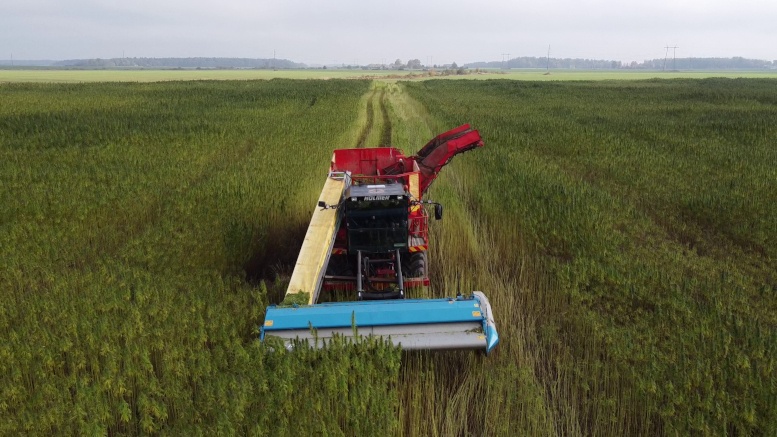Lithuanian hemp producers may now grow and sell hemp flowers on the domestic market after a new law took effect this month. But the changes have done little to cheer the country’s hemp operators amid a worldwide glut of biomass and rising costs.
Before the new law, Lithuanian farmers could grow and export hemp flowers, but only seed and straw were legal to sell in-country.
“We’re happy with this progress – better late than never,” said Audrius Kliopkinas of Lithuanian hemp company Hempspot. “But we still expect the government to move ahead with other changes that will let Lithuania be competitive with other EU countries.”
Fields have shrunk
Lithuania grew to be the European Union’s second-largest producer of hemp behind France in 2019, with more than 9,000 hectares under cultivation. That figure was drastically reduced to 5,300 hectares in 2020 amid a global oversupply which led to unsold material that is still backed up in farmers’ barns from both years. Stakeholders say they expect fields will be flat or further reduced when final figures for 2021 are reported.
Unlike most EU countries, Lithuania has not required a license to grow hemp. Farmers simply declare their intentions and must have their cultivation seed checked by government inspectors before planting. Farmers are otherwise free to grow the crop as they do other typical farm outputs. However, licenses are required for companies who process hemp if that material exceeds the EU THC limit of 0.2% at any point during production. Those rules do not change under the new law.
CBD rules still missing
Lithuania has yet to develop regulations for CBD although such products are readily available in the country. As in many European countries, the Lithuanian government will eventually need to align its legal framework for CBD with EU rules that allow its sale in member states and trade across EU borders.
Other sub-laws and regulations are still needed to bring Lithuania fully in line with European Union guidance and to clear the way for market growth. The Lithuanian Ministry of Agriculture has admitted that the updated national hemp legislation still does not bring Lithuania fully in line with EU hemp regulations.
Products such as hemp oil, hempseed and hemp tea are reported to be growing in popularity among Lithuanian consumers.

